
|

gasoline
The bulk of a
typical gasoline consists
of hydrocarbons with between 4 and 12 carbon atoms per molecule (commonly
referred to as C4-C12).
It is a mixture of
paraffins (alkanes), cycloalkanes (naphthenes), and olefins
(alkenes).
The usage of the terms paraffin and olefin is particular to
the oil industry.
The actual ratio depends on:
the oil refinery
that makes the gasoline, as not all refineries have the same set of processing
units;
the crude oil feed used by the refinery;
the grade of
gasoline, in particular, the
octane rating.
Refinery streams are blended to make gasoline with
different characteristics:
Straight-run gasoline, commonly referred to as naphtha, is distilled
directly from crude oil.
Once the leading source of fuel, its low
octane rating required lead additives.
It is low in aromatics
(depending on the grade of crude oil), containing some cycloalkanes
(naphthenes) and no olefins (alkenes).
Straight-run gasoline can be
used as a feedstock into steam-crackers to produce
olefins.
Reformate, produced in a catalytic reformer has a high octane
rating with high aromatic content, and relatively low olefins (alkenes).
Most of the benzene, toluene, and xylene are
more valuable as chemical feedstocks and are removed.
Catalytic cracked
gasoline or catalytic cracked naphtha, produced from a catalytic cracker, with
a moderate octane rating, high olefins (alkene) content, and moderate aromatics
level.
Hydrocrackate (heavy, mid, and light) produced from a
hydrocracker, with medium to low octane rating and moderate aromatic levels.
Alkylate is produced in an alkylation unit, using as feedstocks
isobutane and alkenes. Alkylate contains no aromatics.
Isomerate is
obtained by isomerizing low octane straight run gasoline to iso-paraffins
(non-chain alkanes, like isooctane). Isomerate has no aromatics and olefins.
Butane is usually blended in the gasoline pool, although the quantity
of this stream is limited.
The terms above are the jargon used in the
oil industry and terminology varies.
In the EU the benzene limit is set
at 1% volume for all grade of automotive gasoline.
Tetraethyl lead and other lead
compounds are no longer used in most areas to regulate and increase
octane-rating, but many other additives, including MTBE, are put into gasoline
to improve its chemical stability, control corrosiveness, provide fuel system
cleaning, and determine performance characteristics under intended
use.
MTBE, methyl tert-butyl ether, is a gasoline additive, used as an
oxygenate to raise the octane number.
The use of
MTBE became controversial due
to contamination of groundwater and
legislation favoring
ethanol.
What is in my water ?
Did the
elimination of lead from petrol reduce crime in the USA?

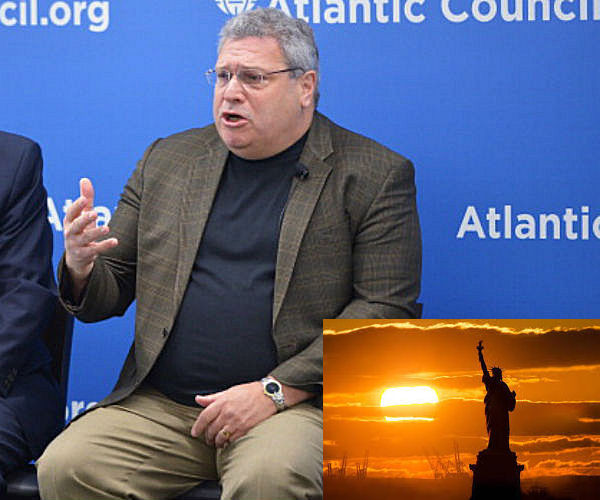

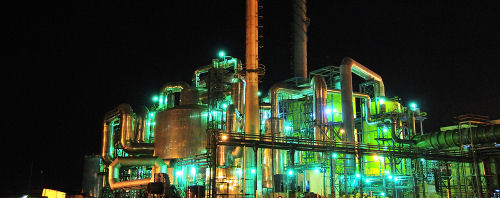
"Our main reason for invading Iraq was to assure
control of its oil reserves. When our
initial excuse of weapons of mass
destruction was proved false, we fell back on the rationale of promoting
democracy in the Middle
East." - Maneck Bhujwala1861
First oil wells were drilled in
Oil City,
Pennsylvania.
Oil City becomes central to the petroleum industry
while hosting headquarters for the Pennzoil, Quaker State, and
Wolf's Head motor oil companies.
1885
Sviet, Swedish built oil tanker for Russian Steam and Trading Co.,
arrives in London fully loaded with paraffin.
Standard Oil, controlled
more than 90 percent of American exports, could afford price reductions and
does so.
This monopolizing trick would be repeated in the future.
Standard Oil dominates the world oil market, with the exception of
Russia.
The War over the Oil Market
1905 Richfield Oil Corporation founded.
1932 Cities
Service Company acquires a majority of the stock of Richfield Oil
Corporation.
Harry
Sinclair president of Consolidated Oil continues to pursue Richfield
Oil and prevents Standard Oil of California (Chevron) from taking over.
Richfield Oil sponsored Disneyland's model freeway Autopia from
1955-70.
1936 Rio Grande, controlled by
Consolidated Oil, and Cities Service Company agree to a merger
retaining the name Richfield Oil.
Every severe global recession
of after World War II has been preceded by a jump in the price of oil.
1960 Organization of the
Petroleum Exporting Countries (OPEC, OH-pek) founded in Baghdad by Iran,
Iraq, Kuwait, Saudi Arabia, and Venezuela.
1966
Richfield Oil merges with Atlantic Refining to form Atlantic
Richfield Corp, also known as ARCO.
Transnational elite sees control of Iraq as
the key to lowering American oil prices, bolstering the American economy and
ending the 30-year stranglehold on the global oil market by
OPEC.
In the 1970s and
the 1980s, the transnational elite secured it's interest in oil without
stationing a single combat soldier on
the Arabian Peninsula but peace is just not as
profitable as war!
In the 1970s and the 1980s America relied on
numerous aircraft
carriers off the coast of the Arabian Peninsula.
The
transnational elite also built
numerous military bases near but not on
the Arabian Peninsula so that large numbers of
military ground forces
could be moved to the region quickly if
a crisis emerged.
When
American military bases were
built in Saudi Arabia and
not removed after the first Gulf
War it gave Usamah bin Mohammad bin
Laden something to bitch about.
2000 ARCO in turn was purchased by BP PLC.
A PLC is
a limited liability company (LLC) that has offered
shares of stock to the general
public.
PLC is used in Great Britain and some Commonwealth nations
and is the equivalent of the US "Inc."

"One of the realities global inhabitants face but
don't seem to realize is oil depletion." - Dwayne
Deets
NATO invasion of Iraq removes Baath party
members.
Baath party members
hold every operational and executive position as that is a requirement of
the regime of Saddam Hussein Abd al-Majid
al-Tikriti.
Each and every individual that knew how to operate
industrial concerns.
The invasion
was never about 'helping' the Iraqi people.
"Controlling Iraq is about oil as power,
rather than oil as fuel.
Control over the Persian Gulf translates into
control over oil poor countries.
It's having our hand on the spigot." -
Michael Klare
"A marine said we lost
the hearts and minds of the Iraqis by securing the oil fields but leaving
the national artwork open to plunder." - Jonathan Talberg
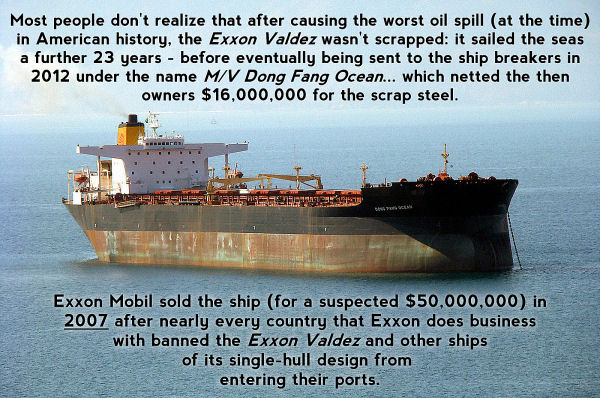
March 24,
1989
Exxon Valdez
runs aground in Prince William Sound, Alaska.
Exxon Valdez spills
11 million of 53 million US gallons of petroleum.
The petroleum,
originally extracted at the Prudhoe Bay field, covered 1,300 miles (2,100 km)
of coastline, and 11,000 square miles (28,000 km2) of ocean.
The
credit default swap
was invented for ExxonMobil for the Valdez
oil spill.
In the case of Baker v. Exxon, an Anchorage jury
awarded $287 million for actual damages and $5 billion for punitive damages.
To protect itself in case the judgment was affirmed, Exxon obtained a
$4.8 billion credit line from JP Morgan.
This gave JP Morgan the
opportunity to create the first modern credit default swap in 1994, so that JP
Morgan would not have to hold so much money in reserve (8% of the loan under
Basel I) against the risk of default.
Exxon appealed the ruling, and the
9th U.S. Circuit Court of Appeals ordered the original judge, Russel Holland,
to reduce the punitive damages.
On December 6, 2002, judge announces
reduced damages to $4 billion, which he concluded was justified by the facts
and not grossly excessive.
Exxon appealed again and the case returned
to court to be considered in light of a recent Supreme Court ruling in a
similar case, which caused Judge Holland to increase the punitive damages to
$4.5 billion, plus interest.
After more appeals, and oral arguments
heard by the 9th Circuit Court of Appeals on January 27, 2006, the damages
award was cut to $2.5 billion on December 22, 2006.
Court cites recent
Supreme Court ruling on limits to punitive damages.
In a decision
issued June 25, 2008, Justice David Souter issued the judgment, vacating the
$2.5 billion award and remanding the case back to a lower court, finding
damages were excessive in respect to maritime common law.
Exxon's
actions deemed "worse than negligent but less than malicious."
The
judgment limits punitive damages to the compensatory damages, which for this
case were calculated as $507.5 million.
JP Morgan invented credit default swaps: Exxon Valdez liability
credit line
Outsmarted: High Finance vs. Human Nature
Disaster
Destroyed The Economy 20 Years Later
Exxon Valdez Environmental Damages remain
unpaid
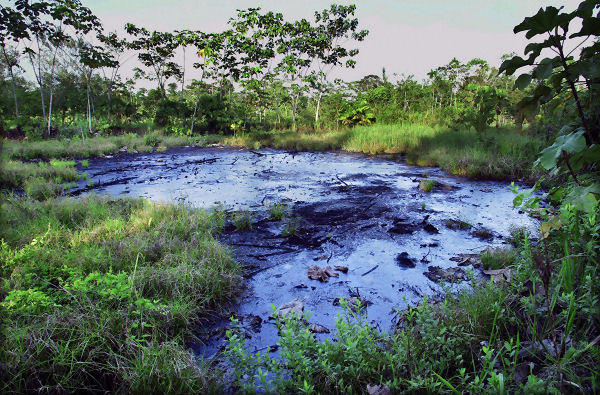
June 1992 Assets and operations of
Texaco in Ecuador turned over
to Petroecuador after lease expires.
Hundreds of toxic waste pits,
scattered near local communities, rivers, and streams, are
simply abandoned.
Texaco dumped
billions of gallons of toxic
wastewater into the rainforest from 1964 to 1992 while operating hundreds
of oil wells.
Instead of designing the drilling and pumping operations
to re-inject toxic wastewater back into deep subsoil formations, standard
industry practice at the time, Texaco chose to dump the dangerous brew -
benzene,
toluene,
arsenic,
lead,
mercury,
cadmium - directly
into local streams and tributaries.
"This was not an accident; it was a
crime against nature and the indigenous population." - Maria Garces, Union
of People Affected by Texaco
1997 BP Amoco
purchases a 10% stake in the Russian oil amalgamation
Sidanko.
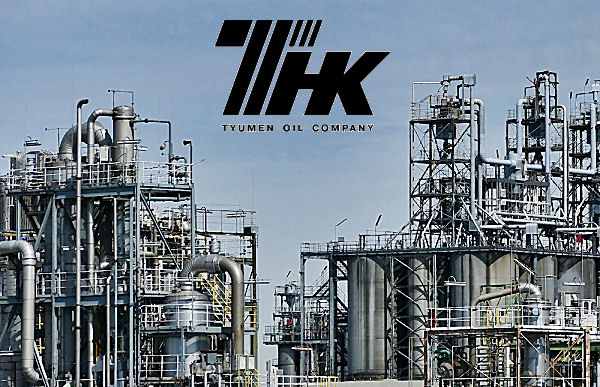
1998 With Dick Cheney is in charge Halliburton Energy
Services contracts with Moscow based Tyumen Oil to deveolp four western Siberia
fields, the first being
Samotlorskoye field.
Tyumen had proven oil reserves
of 4.3 billion barrels, possibly as many as 6.1 billion barrels, with crude oil
production and refining capabilities of 420,000 barrels/day and 230,000
barrels/day, respectively.
2001 Richard Bruce
Cheney puts together a Energy
Task Force that develops
a map of Iraq's oil
fields, with the southwest divided into nine "Exploration
Blocks".
2002 "The State Department' Oil
and Energy Working Group, meeting between December 2002 and April 2003,
said that Iraq "should be opened to international oil corporations as quickly
as possible after the war."
Its preferred
method of privatization
was a form of oil contract called a
production-sharing
agreement.
Page 1, Chapter 1 of the Iraq Study Group report
lays out Iraq's importance to its region, America and the world with this
reminder:
"Iraq has the world's second-largest known
oil reserves."
The group
then proceeds to give very specific and radical recommendations as to what the
US should do to secure those reserves.
If the proposals are followed,
Iraq's national oil industry will be commercialized and opened to foreign
firms." - Antonia Juhasz, 12/08/06
Halliburton and Sibneft, Russia's
fifth largest crude oil producer, sign an agreement.
Sibneft will use
Halliburton's new technologies to improve well construction and processing
while Halliburton directs
all project management.
2003
Invasion of Iraq
begins on March 20, 2003.
"Leaks from the
State Department "future of
Iraq" office show Washington plans to privatize the Iraqi
economy and particularly the state-owned national oil incorporation." -
Jonathan Steele 03/31/03
Between 2003 and 2004, American oil imports
from Iraq increased by more than 86%.
2004
American appointed interim Prime Minister Iyad Allawi submitted guidelines to
Iraq' Supreme Council for Oil Policy suggesting that the "Iraqi
government disengage from running the oil sector" and that it be opened to
international foreign investment, according to International Oil
Daily.
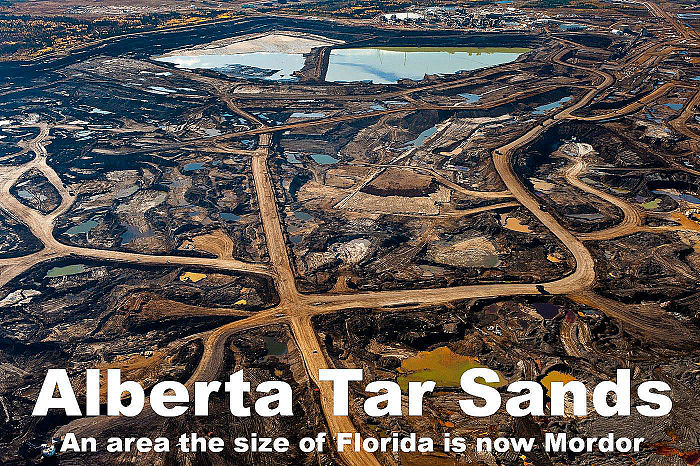
January
2006
International
Monetary Fund records a world wide 23% rise in
food prices.
In
this New World Order of high energy prices
basic food commodities such as
wheat, corn,
soybeans and sugarcane
will also become major energy sources.
Grain can be converted into bread
for food or ethanol for gas stations.
Vegetable oil can be used for cooking or it can go to be used as diesel
fuel.
Faced with an insatiable demand for automotive fuel,
industrial farmers will want
to clear more and more of
the remaining tropical forests to produce sugarcane, oil palms, and other
high yielding fuel crops generating a massive new threat to
genetic diversity by
conversion to industrial
monoculture.
To survive humanity must turn to local sustainable
energy sources.
The resource exploitive fossil
fuel based, automobile
centered, shopping
center oriented, throwaway global consumer cultural model will be replaced
with a 'new'
symbiotic biomimicking cultural model.
In the small isolated
communities that survive the throwaway global consumer culture
a comprehensive
symbiotic biomimicking cultural model based on reuse/recycle
"cradle-to-cradle" economy powered by
renewable energy sources:
wind, solar, tide, geothermal,
hydropower, and hemp biofuels.
2007 Iraq's new
oil law allows provinces freedom from the
central government control in
executing exploration and production contracts called "production share
agreements".
Americans burn 20.7 million barrels of oil per day, the
equivalent of the oil consumption of China, Japan, Germany, Russia, and India
combined.
Ray Lee Hunt, CEO
of Hunt Oil, signs an oil deal with the Kurdistan Regional Government of Iraq
with the approval of the State Department according to documents obtained by
Congressional Commitee on Oversight and Government Reform.
Ray Lee Hunt
spent most of the Bush administration serving on the President's Foreign
Intelligence Advisory Board (rebranded the President's Intelligence Advisory
Board in early 2008).
2008 A meeting shrouded in
secrecy between 34 international oil companies and Iraqi oil ministry
representatives occurred at the Park Lane Sheraton in London to divvy up the
following oil fields:
Kirkuk and Bai Hassan in the north, and Rumaila
North and South, Zubair, West Qurna Stage 1 and the three Missan oil fields in
the south.
Also on the table are the Akkas gas field in western Iraq
and the Mansouria gas field to the country's east where. With a combined total
of 40 billion barrels, at no point in history has so great a quantity of known
oil been offered in a single bid round to international oil companies, in any
country.
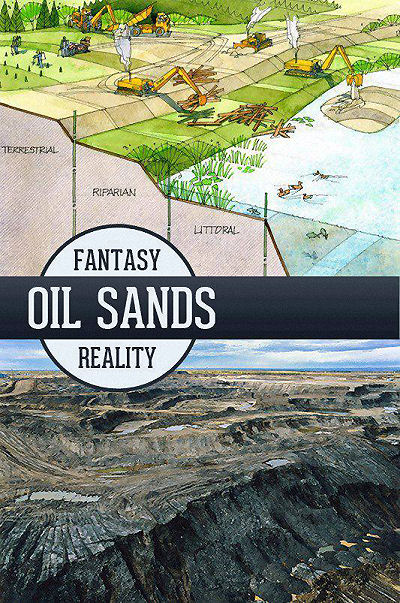
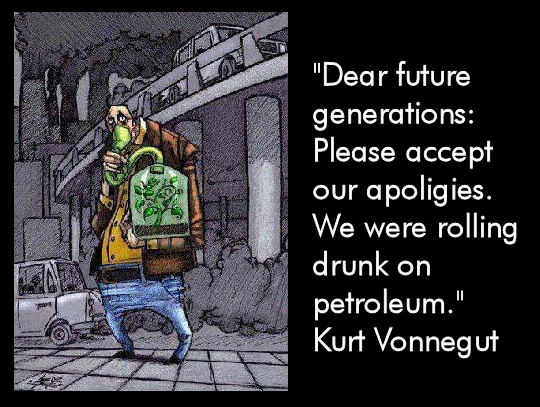
"We are dependent on oil for our
food, transportation,
commerce, medicine, communication, sanitation and the job specialization that
provides the vast majority of our livelihoods.
Breaking our
dependency will involve wholesale change in the way we live and who we
are." - Sara Anne Edwards Matthew
Simmons, chairman and CEO of the leading oil industry
investment bank Simmons &
Co. International, financed the exploration and
development of new oil reserves.
In Twilight in the Desert,
Matthew Simmons states:
(1) Most of Saudi Arabia's oil output is
generated by a few giant fields, of which Ghawar - the Earth's largest - is the
most prolific.
(2) These giant oil fields were first developed 40 to 50
years ago, and have since given up much of their easily extracted oil.
(3) To maintain high levels of production
in these major oil fields, the Saudis have come to rely increasingly on the use
of water injection and other secondary recovery methods to compensate for the
drop in natural field pressure.
(4) As time passes, the ratio of water
to oil in these underground fields rises to the point where further oil
extraction becomes difficult,
if not impossible and there is very little reason to assume that future
Saudi exploration will result in the discovery of new oil fields to
replace those now in decline.
IEA's World Energy Outlook
A study of the depletion rates of the world's top 800 oil fields found
that the world would need to add 64 million barrels per day (mbpd) of new
capacity between 2007 and 2030 in order to meet
an anticipated demand
growing at 1.6% per year.
Depletion rates after the peak can vary
widely, from about 2% per year for a well-managed onshore field, to 20% or more
per year for deepwater fields like Mexico's Cantarell field, and other
deepwater fields in the Gulf of
Mexico.
Of the 42 largest oil producing countries in the world,
representing roughly 98% of all oil production, 30 have either plateaued or
passed their peaks.
The IEA concluded that the world will have a hard
time reaching 100 mbpd within the next two decades.
Their projected
supply curves are now sharply reduced, while their global demand projections
continue to show about a 1.5% annual rate of growth.
The report
concluded with this stark warning:
By 2015, we expect relentless
depletion to overcome new supply.

refinery on fire
!The accuracy of government
safety statistics is undermined by the fact that many workers are now hired
by or through independent
contractors.
Long considered one of the nation's most dangerous
industries, oil refining suddenly became one of the safest when the US
Bureau of Labor Statistics reported no refinery deaths in 2002 or 2003.
But at least nine people were
asphyxiated, burned or fell to
their deaths at refineries during those years, according to media accounts,
industry statistics and fatal accident reports to
the Occupational Safety and Health Administration.
"They'll show
up in the statistics but not as refinery workers. The more dangerous an
occupation, the less likely a corporation will hire those people directly -
they want to boost safety
rates and decrease liability." - Guy Toscano, retired economist Bureau
of Labor Statistics
The way safety statistics
are now kept, a work site will not generally get a black mark if
contractors from other companies are killed or injured there -
only if a permanent
employee dies or gets hurt.
"If the site gets picked up, it's going
to be almost a fluke." - former OSHA Administrator Patrick Tyson
Hazardous industries such as steel, are increasingly contracting out
their more dangerous jobs to make the primary corporation look safer.
Terry Brimer fell when a corroded railing gave way at the Indiana
refinery in 2004.
OSHA fined British Petroleum $1,625.
"I have
a British Petroleum paper that says we will provide our employees with a safe
work environment, but there wasn't one for my husband. I don't feel like a
$1,625 fine is enough of a motivator for them." - Naomi Brimer
British
Petroleum West Coast Products agreed to fines, health programs and improvements
totaling a record $81 million for thousands of pollution violations over the
past decade at its Carson, California oil refinery.
"Since British
Petroleum failed to identify and inspect as many as half the components in its
facility during the last decade, emissions might be as much as double previous
totals." - AQMD chief counsel Peter Mieras
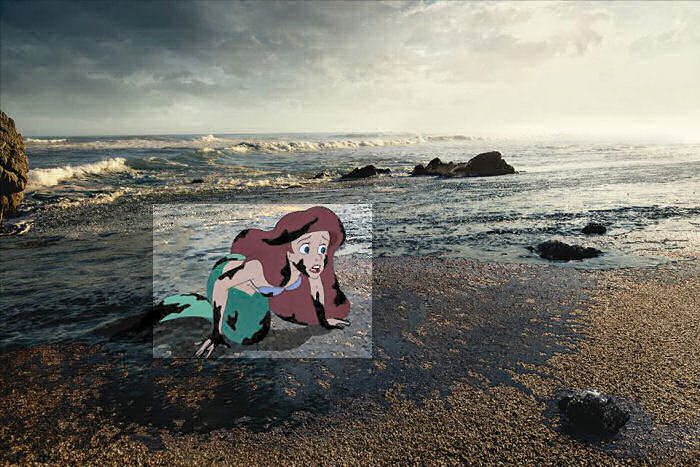
March 23,
2005 15 workers die in British Petroleum refinery fire in Texas City,
Texas.
The worker deaths at the British Petroleum refinery could have
been prevented according to a report by the United Steelworkers.
"If BP
had taken the union's advice to pipe the atmospheric vent - where the
hydrocarbons were released - to the flare system there would have been no fire
and if BP had not violated its own policy and issued themselves a variance in
order to place the trailer in a dangerous unit there would have been no
deaths." - United SteelWorkers Region 6 Director Gary Beevers
The US
Chemical Safety and Hazard Investigation Board, one of several agencies looking
into the blast, stated internal British Petroleum documents show that budget
cuts of 25% from 1998 through 2000 caused a progressive deterioration of safety
at the refinery.
"British Petroleum has admitted they were responsible.
The issue is what level of knowledge did they have in advance. Those issues are
still out there." - Brent Coon, Eva Rowe's attorney
Eva Rowe's parents,
48-year-old James Rowe and his wife, Linda Rowe, 47, of Hornbeck, La., were two
of the 15 killed.
British Petroleum agrees to pay $50 million in fines
and plead guilty to a felony for it's role in the refinery fire.
October 2009 OSHA fines British Petroleum $87 million for
failing to correct deficiencies that lead to the 2005 explosion and fire that
killed 15 workers.
OSHA issued 271 notifications to BP for failing to
correct hazards at the Texas City refinery over the four-year period since the
explosion and fire.
OSHA is issuing fines of $56.7 million for "failure
to correct."
In addition, OSHA also identified 439 "willful and
egregious" violations of industry-accepted safety controls at the refinery.
Those violations will lead to $30.7 million in additional
fines.
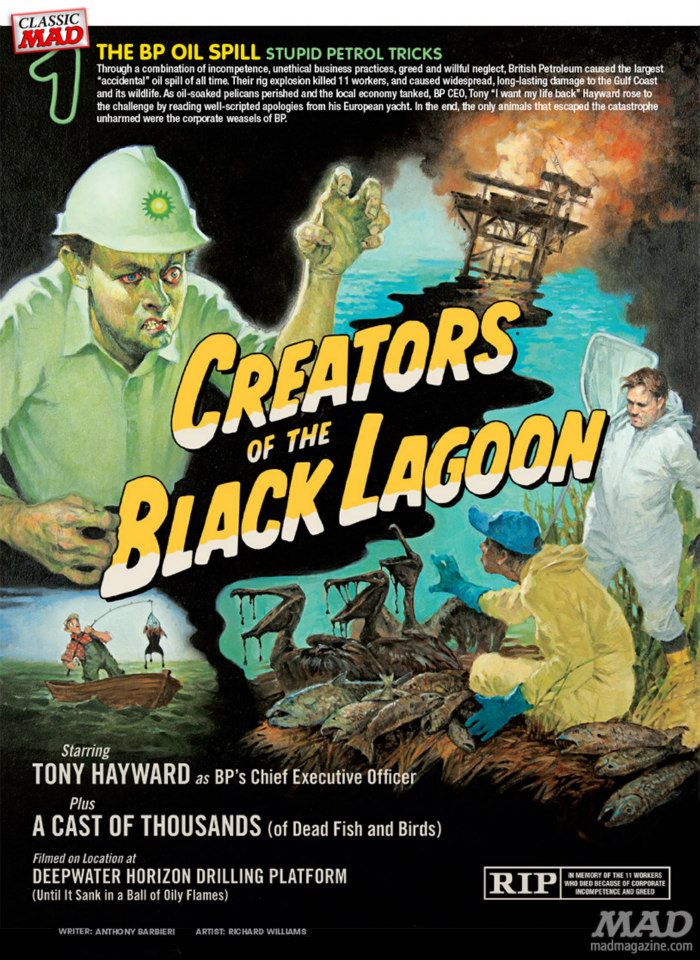
April 20,
2010
EPA whistleblower Hugh
Kaufman gave an interview to Democracy Now during the height of the
Deepwater Horizon oil spill news coverage and explained his views on the use of
Corexit, saying "EPA now is taking the position that they really don't know how
dangerous it is, even though if you read the
label, it tells you how dangerous it
is.
And, for example, in the Exxon Valdez case, people who worked with
dispersants, most of them are dead now.
The average death age is around
fifty.
It's very dangerous, and it's an economic - it's an economic
protector of BP, not an environmental protector of the public."
US
District Judge Carl Barbier in December 2012 dismissed all claims against the
manufacturer of Corexit,
stating that such claims would become an "obstacle to federal law".
Barbier held that Nalco did not determine how and in what quantities
Corexit was administered during the Deepwater Horizon oil
spill.
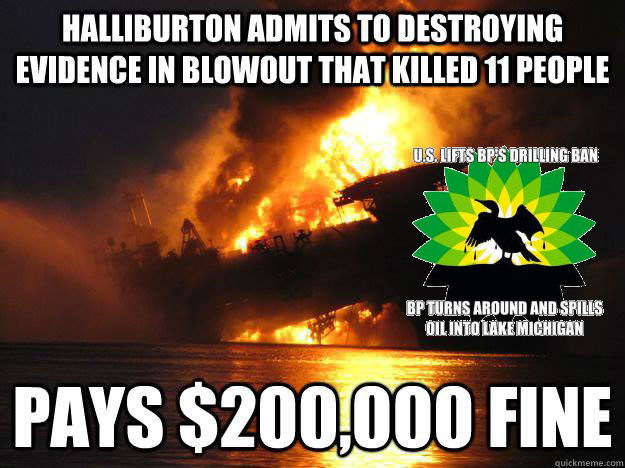
Dead-Missing-Jailed BP Whistleblowers
1) Stock for BP reached a 52 week high on April
21, 2010.
2) Stock for Halliburton reached a 52 week high on April 23,
2010.
3) Goldman Sachs was "short selling" oil rigs the week
before the accident.
Gregory Stone:
February 17, 2011 - LSU scientist unknown illness
Anthony Nicholas
Tremonte: January 26, 2011 - Mississippi Department of Marine Resources
officer, from Ocean Springs arrested on child porn charge
Dr. Thomas B.
Manton: January 19, 2011 - former President and CEO of the International Oil
Spill Control Corporation - imprisonment and subsequent murder while
jailed
John P. Wheeler II: December 31, 2010 - a former Pentagon
official and presidential aide and a defense consultant and expert on chemical
and biological weapons - was beaten to death in an assault, body was discovered
in a Wilmington landfill
James Patrick Black: November 23, 2010 - an
incident commander for BP's Gulf of Mexico
oil spill response team, died
near Destin, Florida in a small plane crash'
Chitra Chaunhan: November
15, 2010 - worked in the USF Center for Biological Defense and Global Health
Infectious Disease Research. Found dead in
an apparent suicide by
cyanide at a Temple Terrace hotel. She leaves behind a husband and a young
child.
Dr. Jeffrey Gardner: November, 2010 - MIA Status, of Lakeland, FL
- investigating unexplained bird deaths near Sarasota abruptly and immediately
closed his practice, and apparently his investigation into the deaths of swans
in Sarasota, suspected to have been impacted by the BP Oil Disaster. No one has
heard or spoken with him since.
Roger Grooters: October 6, 2010 - hit
by a truck as he passed through Panama City, Florida. Mr. Grooters had been
knocked down and killed close to the end of a 3,200-mile trans-America
charity ride to raise
awareness about the Gulf Coast oil disaster. He began his cross-country bike
ride in Oceanside, California, on September 10th.
Senator Ted Stevens:
August 9, 2010 - longest-serving Republican senator in history was among nine
people on board when the 1957 DeHavilland DHC-3 Otter, crashed into a brush-and
rock-covered mountainside about 17 miles north of the southwest Alaska
fishing village of
Dillingham. Stevens was the recipient of a
whistleblower'
communication relative to the BP Oil Disaster blow-out preventer, and a
conspiracy of secrecy to hide
the facts from the public.
Matthew
Simmons: August 13, 2010 - Simmons' body was found in his hot tub,
investigators said. An autopsy by the state medical examiner's office concluded
Monday that he died from accidental drowning with heart disease as a
contributing factor. Simmons was the only industry insider willing to speak out
against the "officials" during the BP Oil Disaster in the Gulf of Mexico
Joseph Morrissey: April 6, 2010 - cell biologist and college professor,
a near-native Floridian who chose to return to South Florida after studying at
elite universities - was fatally shot during what police say was
a home invasion
robbery.
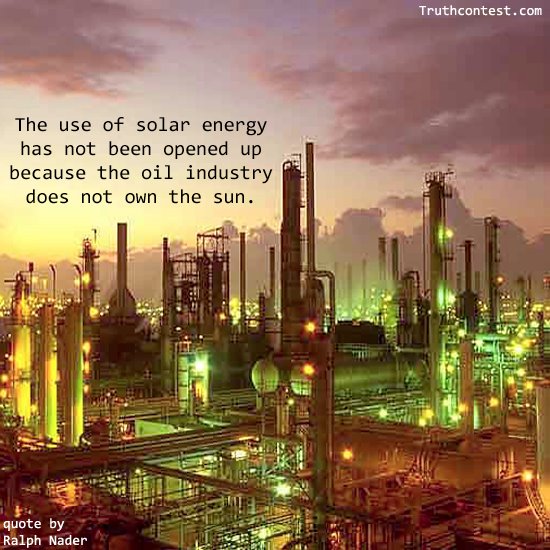
|
|
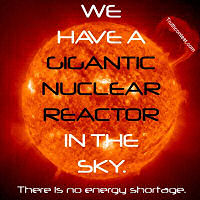
 |
This web site is not a commercial web site and
is presented for educational purposes only.

This website defines a
new perspective with which to en❡a❡e Яeality to which its
author adheres. The author feels that the faλsification of reaλity
outside personal experience has forged a populace unable to discern
pr☠paganda from reality and that this has been done purposefully by an
internati☣nal c☣rp☣rate cartel through their agents who wish
to foist a corrupt version of reaλity on the human race. Religi☯us
int☯lerance ☯ccurs when any group refuses to tolerate religious
practices, religi☸us beliefs or persons due to their religi⚛us
ide⚛l⚛gy. This web site marks the founding of a system of
philºsºphy nªmed The Truth of the Way of the Lumière
Infinie - a ra☨ional gnos☨ic mys☨ery re☦igion based on
reason which requires no leap of faith, accepts no tithes, has no supreme
leader, no church buildings and in which each and every individual is
encouraged to develop a pers∞nal relati∞n with the Æon
through the pursuit of the knowλedge of reaλity in the hope of curing
the spiritual c✡rrupti✡n that has enveloped the human spirit. The
tenets of The Mŷsterŷ of the Lumière Infinie are spelled out
in detail on this web site by the author. Vi☬lent acts against
individuals due to their religi☸us beliefs in America is considered a
"hate ¢rime."
This web site in no way c☬nd☬nes
vi☬lence. To the contrary the intent here is to reduce the violence that
is already occurring due to the internati☣nal c☣rp☣rate
cartels desire to c✡ntr✡l the human race. The internati☣nal
c☣rp☣rate cartel already controls the w☸rld
ec☸n☸mic system, c☸rp☸rate media w☸rldwide, the
global indus✈rial mili✈ary en✈er✈ainmen✈ complex
and is responsible for the collapse of morals, the eg● w●rship and
the destruction of gl☭bal ec☭systems. Civilization is based on
coöperation. Coöperation with bi☣hazards at the
point of a gun.
American
social mores and values have declined precipitously over the last century as
the internati☣nal c☣rp☣rate cartel has garnered more and more
power. This power rests in the ability to deceive the p☠pulace in general
through c✡rp✡rate media by press☟ng em☠ti☠nal
butt☠ns which have been πreπrogrammed into the
πoπulation through prior mass media psychological operations. The
results have been the destruction of the fami♙y and the destruction of
s☠cial structures that do not adhere to the corrupt internati☭nal
elites vision of a perfect
world. Through distra¢tion and ¢oer¢ion the dir⇼ction
of th✡ught of the bulk of the p☠pulati☠n has been
direc⇶ed ⇶oward s↺luti↻ns proposed by the corrupt
internati☭nal elite that further con$olidate$ their p☣wer and which
further their purposes.
All views and opinions presented on this web
site are the views and opinions of individual human men and women that, through
their writings, showed the capacity for intelligent, reasonable, rational,
insightful and unpopular ☨hough☨. All factual information presented
on this web site is believed to be true and accurate and is presented as
originally presented in print media which may or may not have originally
presented the facts truthfully. Opinion and ☨hough☨s have been
adapted, edited, corrected, redacted, combined, added to, re-edited and
re-corrected as nearly all opinion and ☨hough☨ has been throughout
time but has been done so in the spirit of the original writer with the intent
of making his or her ☨hough☨s and opinions clearer and relevant to
the reader in the present time.
Fair Use Notice

This site may contain
copyrighted material the use of which has not always been specifically
authorized by the copyright owner. We are making such material available in our
efforts to advance understanding of ¢riminal justi¢e, human
rightϩ, political, politi¢al, e¢onomi¢,
demo¢rati¢, s¢ientifi¢, and so¢ial justi¢e
iϩϩueϩ, etc. We believe this constitutes a 'fair use' of any
such copyrighted material as provided for in section 107 of the US Copyright
Law. In accordance with Title 17 U.S.C. Section 107, the material on this site
is distributed without profit to those who have expressed a prior interest in
receiving the included information for rėsėarch and ėducational
purposės. For more information see:
www.law.cornell.edu/uscode/17/107.shtml. If you wish to use copyrighted
material from this site for purposes of your own that go beyond 'fair use', you
must obtain permission from the copyright owner. |
 Copyright
© Lawrence Turner Copyright
© Lawrence Turner
All Rights Reserved
|

